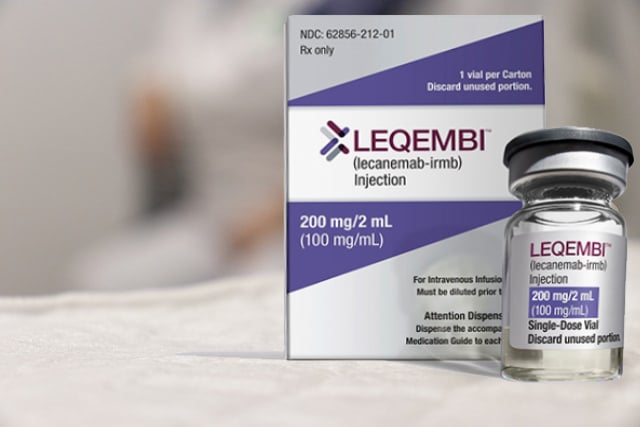Three months before FDA is expected to make the final call on whether issue full approval status to Alzheimer's anti-amyloid Leqembi, new concerns arise about the drug's safety.
In June, the Food and Drug Administration will decide whether to grant full approval to Biogen and Eisai’s anti-amyloid Alzheimer’s drug Leqembi (generic name lecanemab). The recently approved treatment received FDA approval via the accelerated approval track in January of 2023. It was a good candidate for accelerated approval because Alzheimer’s disease is globally increasingly prevalent, and only one other new (and controversial) drug is approved to change its course. However, the jury is still out on Leqembi’s safety, much less its efficacy.
Some media outlets and clinicians sounded alarms around the deaths of three trial participants during lecanemab’s clinical trials. According to third-party experts, two of the three reported deaths were linked to anticoagulants — blood-thinner medications.
Normally, anticoagulant drugs help prevent strokes and heart attacks. But in these cases, blood thinners may have played a role in exacerbating brain swelling and brain bleeds — two known side effects of anti-amyloid drugs like Leqembi.
While these deaths raised concern, the researchers conducting Leqembi’s drug trials did not find any increased risk of death, overall, among trial participants who were taking the drug. The deaths, they said, were not particularly unusual events among trial participants, who are older adults living with Alzheimer’s disease.
Now, however, eyes are back on Leqembi as new information has surfaced about the third of those three aforementioned deaths. The magazine Science has reported new information that the third death in the study — that of a 79-year-old Florida woman — may have been directly linked to the drug.
Science reports that Vanderbilt University pathologist Hannah Harmsen wrote a case report in which she gave her medical opinion that the woman’s autopsy and medical history suggested that “lecanemab infusions were a catalyst leading to the events resulting in her death.”
A condition called cerebral amyloid angiopathy (CAA) causes Alzheimer’s biomarkers called amyloid plaques to build up in blood vessels. Harmsen’s report explains that Leqembi attached itself to amyloid in the brain’s blood vessels as it is designed to do, and that this likely led to the patient’s swelling and hemorrhaging — a known side effect. However, people with the condition CAA have increased risk of serious side effects.
The big takeaway: Clinicians prescribing Leqembi need to not only explain the heightened risks of anti-amyloids to patients on blood thinners; they should also run expensive tests to confirm a patient does not have CAA, as this carries heightened risk of complications including death.
Harmsen’s case report, which was provided to Science but is currently unpublished, concluded that “a careful evaluation of the safety of lecanemab treatment and a refinement of the approach to pre-screening potential recipients of lecanemab for [CAA].”
The FDA will have this report, along with a great deal of other data, in front of them when they meet on June 9 ahead of a potential full approval of Leqembi. A final decision is expected in July.





Hello I can’t seem to find contraindications on this drug please send thank you